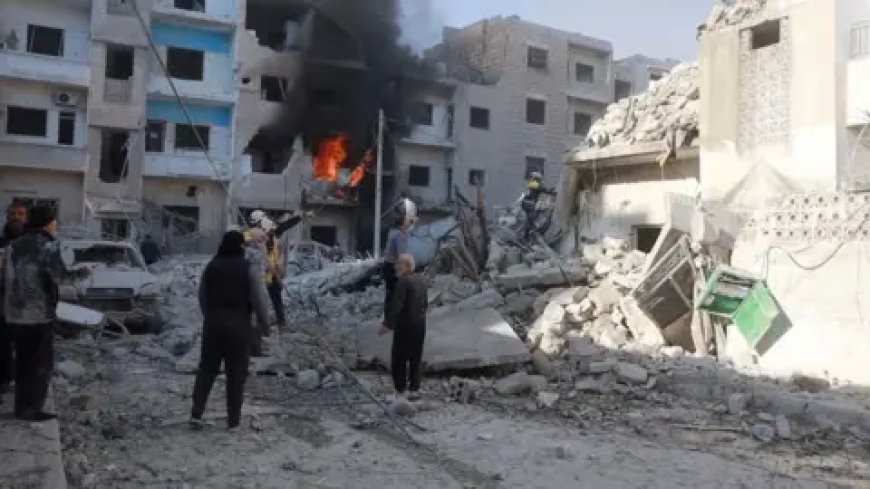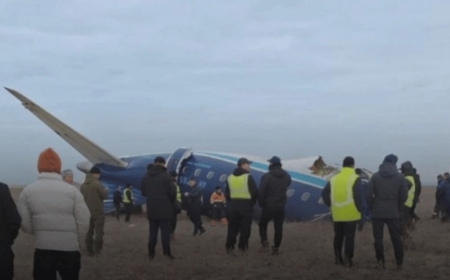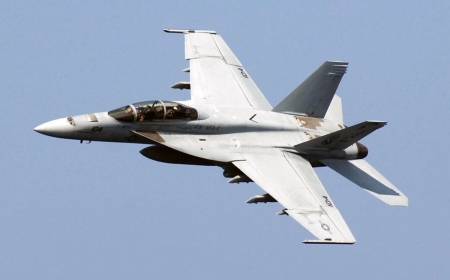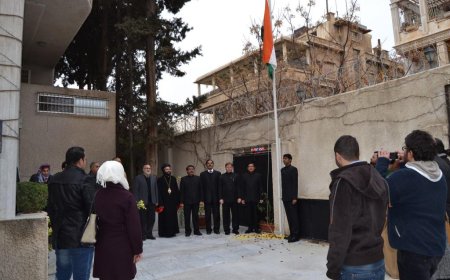Syria in Turmoil: Bashar al-Assad's Regime Falls, Uncertain Future Looms
The fall of Syrian President Bashar al-Assad marks a turning point in the country's history. With rebels led by HTS seizing control, questions arise about Syria's future, regional stability, and international stakes.

Bashar al-Assad's Rule Ends in Sudden Collapse
Syria has entered a new chapter of uncertainty as President Bashar al-Assad's two-decade-long rule abruptly ended after a swift offensive by Hayat Tahrir al-Sham (HTS) and allied groups. Once a key figure in Middle Eastern politics, Assad's grip on power crumbled as rebels captured major cities, including Aleppo, Hama, and Damascus, within days.
HTS, a group with roots in al-Qaeda, has formed a transitional authority under its leader, Ahmed al-Sharaa (formerly known as Abu Mohammed al-Golani). Prime Minister Mohammed al-Jalali has been appointed caretaker of state institutions, pledging to work with any leadership chosen by the Syrian people.
A Fragile Transition and Deep Uncertainty
Despite promises of reform, HTS's extremist history raises concerns about its ability to govern a deeply fractured Syria. Millions of displaced Syrians, both within the country and abroad, are watching events unfold with mixed emotions—hope for an end to war, yet fear of continued instability and authoritarian rule.
The Fall of Assad: A Blow to Russian and Iranian Influence
The collapse of Assad’s regime is a significant setback for Russia and Iran, two of his staunchest allies. Russia, deeply engaged in the war in Ukraine, is struggling to maintain its strategic footholds in Syria, including the Tartous naval base and the Hmeimim airbase.
Iran’s influence in Syria, a key link in its "Axis of Resistance" strategy connecting Tehran to Hezbollah in Lebanon, is now uncertain. With Hezbollah weakened and Iran facing pressures at home and abroad, its ability to influence Syrian developments is limited.
Turkey's Ambiguity and Israel’s Strategic Concerns
Turkey, which houses over three million Syrian refugees, has denied direct involvement in the HTS offensive. However, analysts suggest Ankara may have given tacit approval to the operation as part of its broader goals to secure its borders and counter Kurdish militias.
Meanwhile, Israel faces a complex situation. While the fall of Assad disrupts Iran’s supply lines to Hezbollah, the rise of HTS presents new risks. Israel has reinforced its presence along the Golan Heights to guard against spillovers and potential threats to regional stability.
Syria's Path Forward
The fall of Bashar al-Assad marks a historic moment, but peace remains elusive. With HTS at the helm and regional powers recalibrating their strategies, Syria's future hangs in the balance.
What's Your Reaction?
 Like
0
Like
0
 Dislike
0
Dislike
0
 Love
0
Love
0
 Funny
0
Funny
0
 Angry
0
Angry
0
 Sad
0
Sad
0
 Wow
0
Wow
0






































































